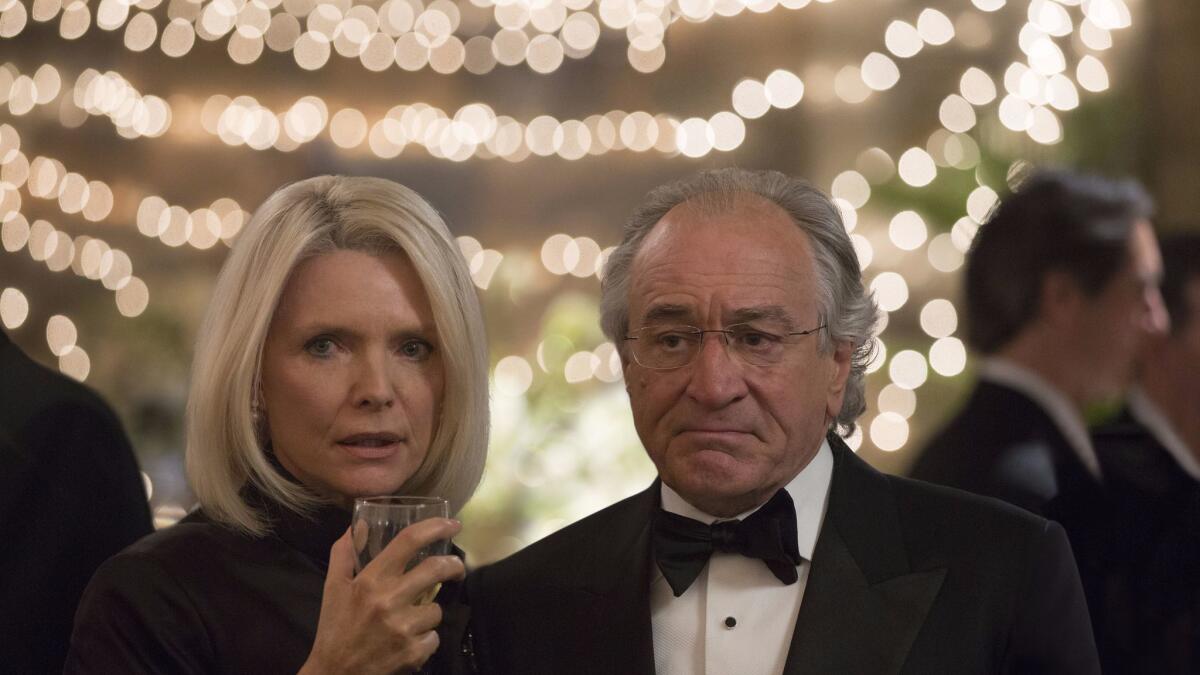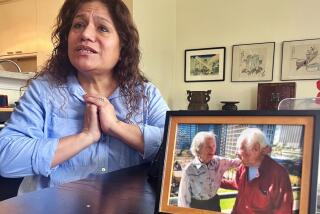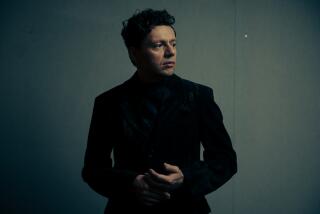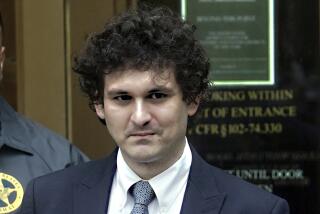Robert De Niro plays an oddly convincing Madoff in HBO’s ‘Wizard of Lies’

The $65-billion Ponzi scheme run by Wall Street luminary Bernie Madoff claimed many victims.
Widows, in-laws and even Holocaust survivors were bilked out of their life savings in one of the largest financial frauds in U.S. history.
When Madoff was thrown in prison in 2009, the media and public wanted reparations, if not blood, looking to his family for restitution.
But if you’re to believe HBO’s drama “The Wizard of Lies,” which premieres Saturday, Madoff’s sons and wife were also victims of his deception — and paid dearly for his sins (The film is TV’s second Madoff-centered project. ABC in February 2016 aired the original movie “Madoff,” starring Richard Dreyfuss.)
Based on a book of the same name by New York Times financial reporter Diana Henriques, the Barry Levinson-directed film, which is a little over two hours, opens in 2008, when Madoff (Robert De Niro) admits to sons Mark and Andrew (Alessandro Nivola and Nathan Darrow) that he’s been moving money around in a billion-dollar shell game.
Despite the fact they also work in the same Wall Street firm as their father, they appear utterly blindsided by his admission.
Ruth (Michelle Pfeiffer), Madoff’s wife of 50 years, is also flummoxed, apparently so removed from her husband’s misdeeds — and the world he works in — she doesn’t even know what the term “Ponzi scheme” means.
It’s a level of cluelessness that’s as hard to believe now as it was in 2009, when Madoff was sent to prison on a 150-year sentence.
But “The Wizard of Wall Street” isn’t about getting to the truth (did they or didn’t they know?). It’s about the broken family bonds behind the scandal.
The Madoffs were already a dysfunctional lot before the FBI stepped in. They became targets for late-night hosts and investigative segments on “60 Minutes.” The difference is that their interaction abyss and denial helped take down half of moneyed Manhattan.
De Niro’s Madoff is an odd duck — neither cruel nr conflicted. Acting in his first television project, the Oscar winner portrays Madoff as an emotion-free money machine, taking advantage where he can, easily convincing himself that the people he’s bilking are aware of the game he’s playing, making them willing participants in their own downfall.
He leaves his sons out of the loop as often as possible, later claiming he was protecting them. But his actions often appear more like a father who doesn’t believe in the competence of his offspring.
Above all, the detached Madoff seems incapable of understanding just how much damage he’s done.
“The Wizard of Lies” uses the device of Madoff’s prison interviews with journalist Henriques as bookends. During one exchange, he says to her: “People here always ask me how come I never ran. The truth is it didn’t even occur to me. I guess it’s because I never thought of what I was doing as stealing.”
She reminds him that people lost their life savings and their homes, and lives were destroyed. “People felt safe with you,” she says, “and you betrayed them all.”
Madoff’s justification is swift and automatic: “These people had a little greed in them too. They didn’t want to look too hard, they looked just far enough. They’re accomplices in some way too. ... There’s lack of honesty on their behalf and I’m willing to take responsibly for their behavior.”
As Ruth, Pfeiffer convincingly portrays a pampered woman left with utterly nothing — she’s lost her homes, status and, most important, her relationship with her sons.
They turned in their father and refuse to speak to Ruth unless she cuts ties all together with the imprisoned Madoff. But he is all she knows, and Pfeiffer makes us feel that slow and painful awakening as Ruth comes to terms with the fact she too was deceived by her lifelong partner (She and De Niro played a couple who headed up a crime family in 2013’s “The Family.”)
Madoff’s sons make less of an impact in “The Wizard of Lies,” partly because they are meant to be weak characters in relation to their powerhouse of a father. Madoff’s right-hand man, the skeezy Frank DiPascali (Hank Azaria), is the only character in the film who’s in on the scheme. And oh, what a hateful, uncouth fellow he is.
At the film’s close, the usually nonplussed Madoff is visibly upset, telling Henriques about a recent New York Times article where a psychiatric expert compares him to serial killer Ted Bundy.
“He killed innocent people,” says Madoff. “I warned people.”
Madoff then makes a comment that marks his only self-aware moment in the film.
He asks, “Do you think I’m a sociopath?”
‘The Wizard of Lies’
Where: HBO
When: 8 p.m. Saturday
Rating: TV-MA (may be unsuitable for children under the age of 17)
More to Read
The complete guide to home viewing
Get Screen Gab for everything about the TV shows and streaming movies everyone’s talking about.
You may occasionally receive promotional content from the Los Angeles Times.







